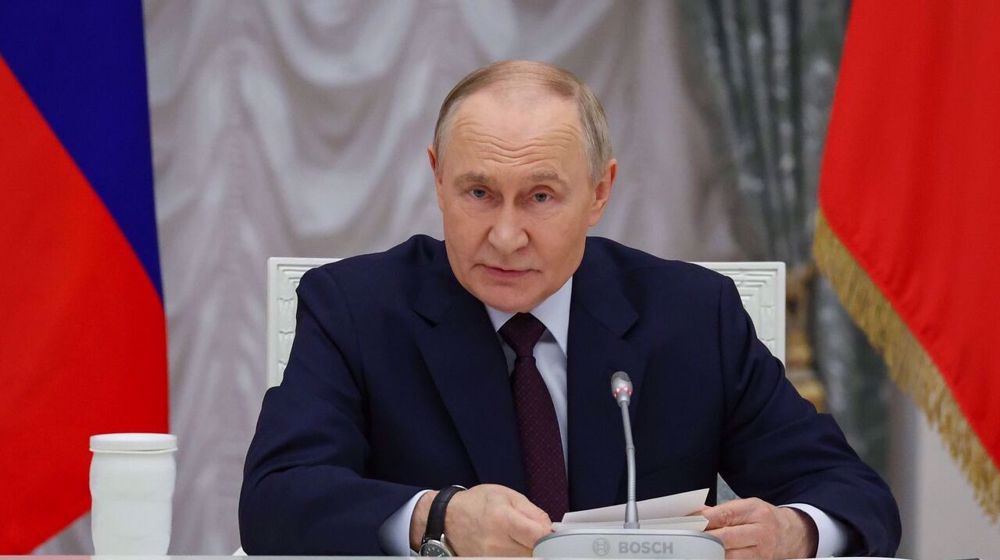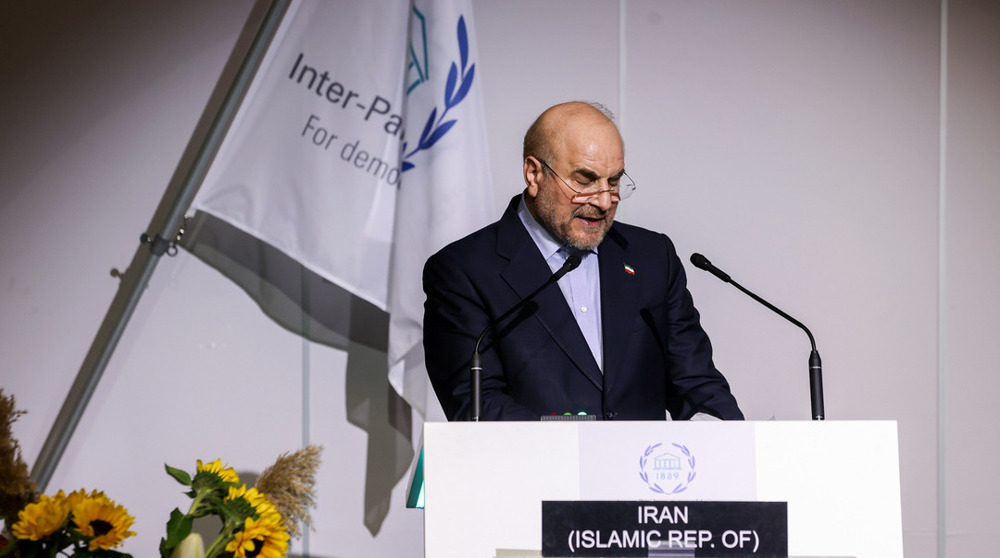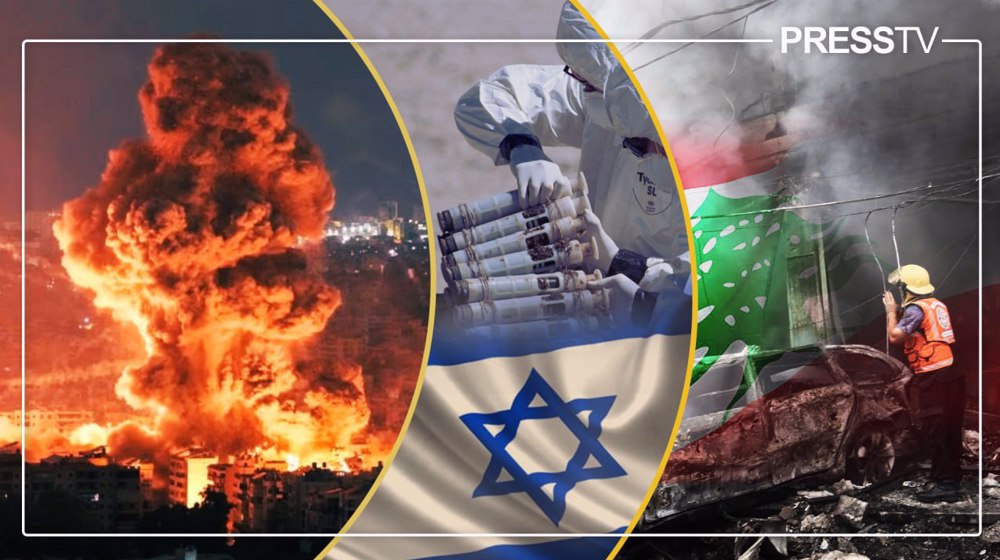Qalibaf’s visit to Lebanon, defying Zionist threats, shows real solidarity
By Musa Iqbal
The past few weeks have proven once again that if you are a friend to the Islamic Republic of Iran and if you stand on the right side of history, the Iranian nation will also be a steadfast ally and supporter in return.
Despite Zionist threats of assassination and even threats to blow up airplanes carrying Iranian officials after Operation True Promise II, we have witnessed top-ranking Iranian officials making public trips to regional countries, including Lebanon.
The trips came amid the Israeli regime’s relentless bombardment of Gaza and Lebanon after failing to invade the latter through the ground due to Hezbollah's far superior hybrid warfare tactics.
The warnings against flying into Lebanon did not deter Iranian officials. Foreign Minister Abbas Araghchi was the first to visit Lebanon, carrying humanitarian aid with him, on October 4th. He landed in Beirut hours before the Leader of the Islamic Revolution Ayatollah Seyyed Ali Khamenei led historic Friday prayers and sermons in Tehran.
Ayatollah Khamenei defended Operation True Promise II that dealt a heavy blow to the Zionist entity and warned the Tel Aviv regime against repeating the foolhardy military adventure. In Beirut, Araghchi met with senior Lebanese officials and reaffirmed Iran's unwavering support to the government, people and resistance of the Arab country.
The top Iranian diplomat dashed off to Damascus from Beirut, defying Israeli threats. To the dismay of Zionists, his visit was just a precursor of what was to come.
On Saturday, October 12, Iranian Parliament Speaker Mohammad Baqer Qalibaf also flew into Beirut, piloting his own aircraft, which touched down in the Lebanese capital amid plumes of smoke caused by Israeli bombings.
While most countries are urging their citizens to exit Lebanon, the Iranian Parliament Speaker decided to fly his own plane right into the chaos, landing it in Beirut like it was just another Saturday!
— Press TV 🔻 (@PressTV) October 12, 2024
Oh, and just a little presser at a site that had been a target for Israel! pic.twitter.com/NuXY65Wsq2
Unfazed by threats against Iranian planes, Qalibaf literally took matters into his own hands, donned the pilot's attire and arrived in Lebanon as a powerful act of solidarity with the Lebanese people.
Qalibaf is far from an ordinary politician. He served as a commander of the Islamic Revolution Guards Corps Air Force from 1997 to 2000. He is also a veteran of the Iran-Iraq war, known as the Holy Defense, where he started his military career in the early 1980s, quickly rising through the ranks as a skilled tactician and strategist.
“We wanted to emphasize that we follow our dear Leader's [Ayatollah Ali Khamenei] example, who led Friday prayers despite enemy threats, with a strong presence from our proud people who are always on the front lines,” the speaker said in Beirut on being asked about him piloting the plane.
By exposing the Zionist entity as merely a "paper tiger," Qalibaf and other Iranian officials who engaged in active diplomacy amid threats and saber-rattling aimed to galvanize more support for the Palestinian and Lebanese cause across the region.
Certain Arab states continue to engage with the Zionist regime or refuse to support resistance forces and Palestinians, largely due to fears of Zionist retaliation. They also don't want to antagonize Americans.
Iran, on the other hand, is demonstrating that these threats are empty, so long as there is unity around the Palestinian cause, as Ayatollah Khamenei emphasized in his historic Friday sermon recently.
Qalibaf’s visit to Lebanon, where he visited suburbs bombed by Israeli warplanes in recent weeks, also underscored Iran’s growing soft power in the region, as it stands by its allies, particularly in times of need.
Iran's Parliament Speaker Mohammad Bagher Qalibaf visits ruins of buildings destroyed by Israeli airstrikes in southern suburbs of Beirut. pic.twitter.com/siZ4frRs8W
— Press TV 🔻 (@PressTV) October 12, 2024
Qalibaf toured areas in central and southern Beirut subjected to Israeli aggression, a gesture that even some pro-Western Lebanese politicians have not made.
Despite the threat of bombings and the Zionist regime’s usual modus operandi of assassinations, Iran is sending a clear message that its solidarity with the oppressed and occupied knows no limits.
Iran wants the region to understand that they do not have to submit to the Zionist regime and that regional peace is possible through the rejection of Western-backed aggression.
"We do not fear the enemy, and we carried out this mission in full accordance with international law. We have no fear of coming here," Qalibaf told reporters during his visit, exuding remarkable confidence.
As Israel continues carpet bombing of Gaza and Lebanon, it has also threatened Iran with military aggression after being rattled by Iranian ballistic missile strikes that came in response to a series of assassinations of senior resistance leaders, including Sayyed Hassan Nasrallah, Ismail Haniyeh and Abbas Nilforushan.
In response, Qalibaf challenged the Tel Aviv regime: “We will respond with strength and noticeably and appropriately. This has been demonstrated before, and I hope it serves as a lesson to our enemies.”
The IRGC warned Israel that if it retaliates after the conclusion of the "True Promise II" missile operation, it would face even harsher strikes, with sensitive military and energy sites being targeted if necessary.
Qalibaf’s visit—piloting his own plane and landing in Beirut to declare full support for Lebanon and the resistance—raises the stakes in the confrontation with the Zionist regime.
Iran’s Parliament speaker visits Beirut@Mariampresstv reports from Beirut. pic.twitter.com/zoE623sM9t
— Press TV 🔻 (@PressTV) October 13, 2024
Israeli attacks around Beirut airport have intensified, leading to the cancellation of hundreds of flights as the Zionist regime closely monitors all air traffic in and out of the airport. Yet Iran remains steadfast in its commitment to the resistance, particularly during critical times.
Where some nations have capitulated to the Zionist regime, Iran has only increased its support for resistance forces and has thrown its weight behind those in the Zionists' crosshairs.
During his meetings with reporters and local residents in the damaged areas, Qalibaf assured the Lebanese people that they would not only receive immediate aid from Iran but also long-term support in rebuilding the infrastructure destroyed by Zionist aggression.
“It is natural for us to contribute to rebuilding the damaged infrastructure. We will offer support, and Islamic countries will also play a role,” he asserted.
Iran’s leadership role in the region continues to grow despite violent threats and attacks from both the United States and Israel. As Iran offers an alternative to Zionist capitulation, it is also demonstrating that concrete steps must be taken to support the resistance and the people of Lebanon.
Iran remains a steadfast partner to the Lebanese people—perhaps even more committed than some Lebanese officials themselves. We are witnessing the emergence of a new era in West Asian regional policy, where solidarity and unity are not just political slogans but concrete actions.
Musa Iqbal is a Boston-based researcher and writer with a focus on US domestic and foreign policy.
(The views expressed in this article do not necessarily reflect those of Press TV.)
Iran slams Israeli attacks on Lebanon, warn UNSC’s inaction to embolden regime
Iran says has ‘no choice’ but to fight back, holds no enmity toward American people
Bahraini police assaults crowds mourning loss of Ayatollah Khamenei
Iran posed no imminent threat to US: Pentagon tells Congress
Iran will hold no negotiations with US: Larijani
Despite Leader's martyrdom, Islamic Republic firmly in control and punishing the enemy
At least 31 killed in Israeli aggression on southern Lebanon after Hezbollah strikes
Iran writes to UN, warns about dire consequences for perpetrators following Leader's martyrdom















 This makes it easy to access the Press TV website
This makes it easy to access the Press TV website